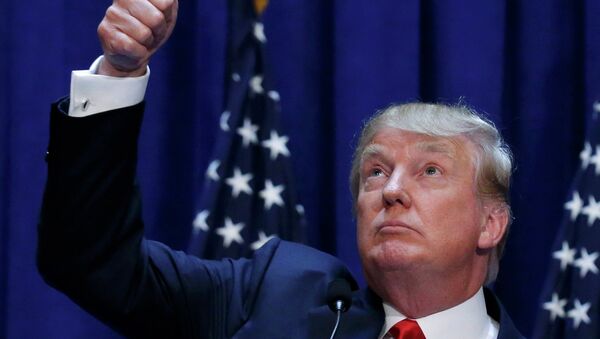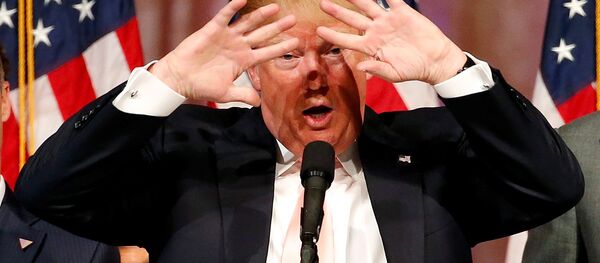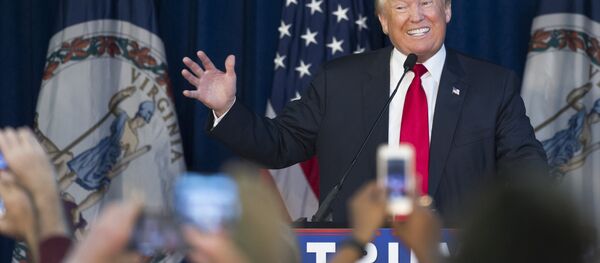During a rally in Portland, Maine, last week, the Republican presidential hopeful doubled-down on his call to ban immigration from Muslim-majority countries.
"We’re letting people come in from terrorist nations that shouldn’t be allowed because you can’t vet them," he said. "There’s no way of vetting them. You have no idea who they are. This could be the great Trojan horse of all time."
The billionaire provided his list of so-called "terrorist nations," including, Somalia, Syria, Morocco, Uzbekistan, Afghanistan, Iraq, Pakistan, Yemen, and the Philippines.
At least one of those nations included on the list was none-too-thrilled.
"There is no feasible basis or reasonable justification to the wholesale labeling of Filipinos as coming from a ‘terrorist state’ or they will be a Trojan horse," reads a new resolution filed in the Philippines’ House of Representatives by Congressman Joey Sarte.
"This comes from a long line of pronouncements where [Trump] has demonstrated an unrepentantly negative, dysfunctionally nativist, aggressively adversarial attitude towards immigrants in the US where he aspires to be leader."
The resolution seeks to permanently ban Trump from the Philippines.
It seems unlikely that the resolution will pass. Banning a potential head of state could have dramatic consequences, and a similar effort to bar the billionaire from entering the United Kingdom has gained little traction.
Still, Trump’s comments, were he elected, could potentially affect the roughly 4,000,000 people of Filipino descent currently living in the United States, as well.
The inclusion of the Philippines on Trump’s list of terrorist nations is noteworthy given that it seems to go beyond the candidate’s proposed Muslim ban. According to the CIA’s World Factbook, over 90% of the country’s population is Christian, and most are practicing Roman Catholics. Only 5% consider themselves to be Muslims.
It’s possible, given the candidate’s consistent propensity for speaking off the cuff, that Trump confused the Philippines with nearby Indonesia, the world’s most populous Muslim country.





